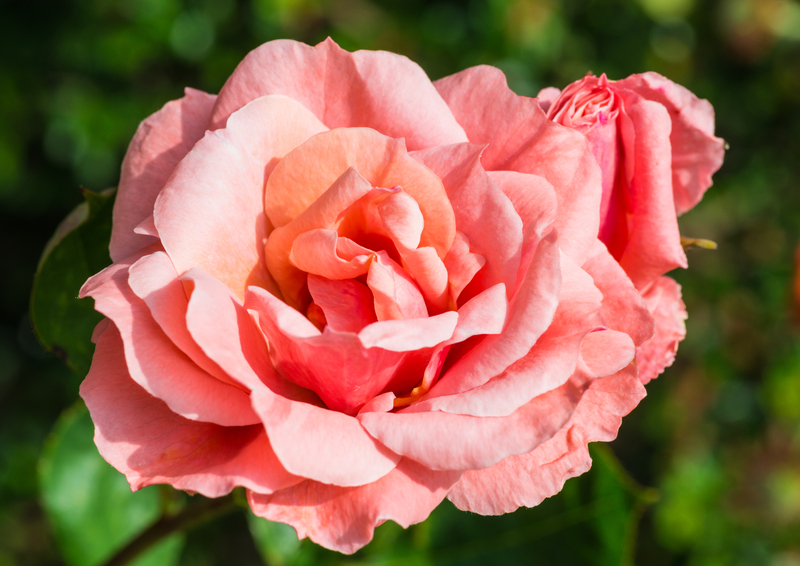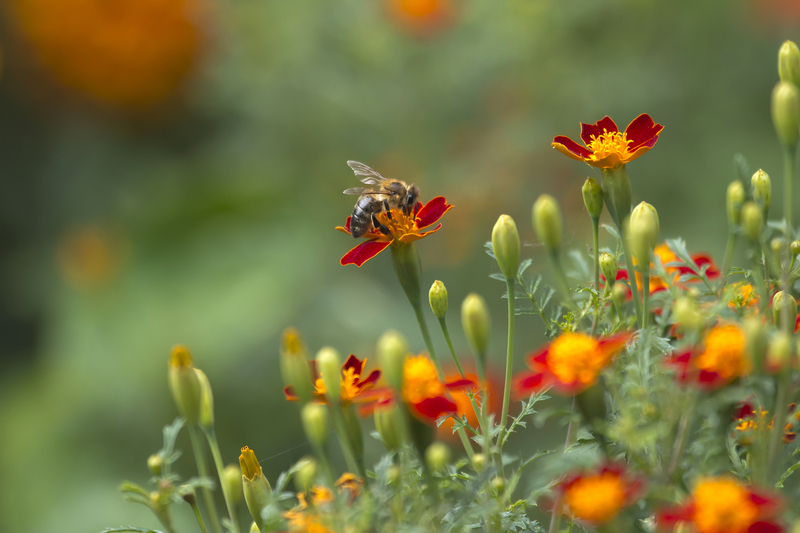Discover the Basics: 9 Key Gardening Tips for Beginners
Posted on 20/08/2025
Discover the Basics: 9 Key Gardening Tips for Beginners
Starting your gardening journey can seem daunting, but with the right approach and practical advice, anyone can cultivate a thriving garden. Whether you dream of growing vibrant flowers, lush vegetables, or majestic shrubs, understanding the essential gardening techniques is your stepping stone to success.
In this comprehensive guide, we'll walk you through 9 key gardening tips for beginners. By mastering these fundamental gardening basics, you'll lay the groundwork for a rewarding and fruitful gardening experience. Let's dig in!

1. Choose the Right Location
The first step in successful gardening for beginners is selecting the perfect spot. Your garden's location can make or break your efforts. Most plants require at least 6 hours of sunlight a day, so observe potential areas to see which parts of your yard receive the most consistent light. If you're working with limited space or a balcony, container gardens make an excellent option.
Consider These Factors When Picking a Location:
- Sunlight: Track sun exposure in the area throughout the day.
- Soil Drainage: Avoid waterlogged areas; most plants despise soggy roots.
- Access to Water: Ensure hoses or watering cans can reach your garden easily.
- Protection from Wind: Choose a spot with some shelter from harsh winds.
Remember: Great gardening starts with an informed site selection!
2. Understand Your Soil
Knowing the type of soil in your garden beds is crucial. Soil is the foundation of gardening, providing nutrients, water, and support for your plants. There are three main soil types: clay, sandy, and loamy.
- Clay soil: Heavy, holds water, but drains poorly. Needs improvement for most crops.
- Sandy soil: Drains quickly but dries out fast and lacks nutrients.
- Loamy soil: Ideal for gardening, offering the perfect balance of drainage and nutrients.
How to Test Your Soil
- Use a soil test kit (available at garden centers) to check pH and nutrient levels.
- Send a sample to your local cooperative extension office for a detailed analysis.
Once you know your soil type, amend it by adding organic matter, such as compost or well-rotted manure, to enhance fertility and structure.
3. Choose the Right Plants
The heart of any garden is its plants. Beginners should select easy-to-grow varieties that thrive in their region. Check your local USDA Plant Hardiness Zone to find out which plants are best suited to your climate.
Top Beginner-Friendly Plants
- Vegetables: Lettuce, radishes, tomatoes, beans, and zucchini are all forgiving and quick to mature.
- Herbs: Basil, mint, rosemary, and parsley are simple to grow at home.
- Flowers: Marigolds, sunflowers, petunias, and pansies provide vibrant color and easy care.
Pro Tip: Native plants are typically low-maintenance and attract beneficial pollinators!
4. Start Small and Expand Gradually
When learning the basics of gardening, it's best to begin with a small garden. This way, you can manage your plants effectively and minimize the risk of feeling overwhelmed. As you gain confidence and experience, gradually enlarge your gardening space. Container gardens, raised beds, and hanging planters are excellent options for newbies.
Benefits of Starting Small:
- Less work and lower maintenance
- Greater chance of early success
- Opportunity to experiment and learn
- Flexibility to move or alter your garden layout
5. Master Proper Watering Techniques
Overwatering and underwatering are two of the most common mistakes for novice gardeners. Plants have different water requirements depending on their type, size, and growth stage.
- Check Soil Moisture: Insert your finger 1-2 inches into the soil. If it feels dry, it's time to water.
- Water Early: The best time to water plants is in the early morning, which reduces evaporation and prevents fungal diseases.
- Deep, Infrequent Watering: Water deeply but less frequently to encourage strong root growth.
- Avoid Wetting Leaves: Water the base to minimize the risk of mildew and fungus.
Tip: Mulch around your plants to retain moisture and suppress weeds.
6. Feed Your Garden: Fertilizing Basics
A flourishing garden draws much of its energy from the nutrients in the soil. Over time, those nutrients become depleted, so regular fertilization is essential. For beginner gardeners, start with balanced, slow-release fertilizers or organic options like compost, worm castings, or fish emulsion.
Key Fertilizing Tips:
- Read fertilizer labels and follow instructions carefully.
- Use compost to provide natural nutrients and improve soil texture.
- Feed during active growth periods (spring and early summer).
- Don't over-fertilize, as it can harm your plants.
7. Learn the Art of Pruning
Pruning is more than just cutting away dead branches. It encourages healthy growth, shapes your plants, and helps prevent disease. Understanding simple pruning techniques can boost your confidence and success.
- Use clean, sharp pruning shears for precise cuts.
- Remove dead, diseased, or damaged growth.
- Prune flowering plants right after their blooms fade.
- Research the specific pruning needs of each plant type.
Regular pruning keeps your garden looking its best and extends the lifespan of your plants.
8. Prevent and Control Pests Naturally
Even the healthiest gardens can sometimes attract unwanted pests. To maintain your plants and the environment, choose natural pest control methods over harsh chemicals, especially when starting out in home gardening.
Eco-Friendly Ways to Prevent Pests
- Encourage beneficial insects like ladybugs and lacewings.
- Hand-pick pests or wash them off with a strong spray of water.
- Use organic sprays like neem oil or insecticidal soap as needed.
- Practice crop rotation and plant companion species for natural pest resistance.
Healthy plants are better equipped to ward off pests. Always monitor your garden and act quickly if you spot a problem.

9. Keep Learning and Have Patience
Great gardens aren't built overnight! Gardening is an ever-evolving process, and even expert gardeners make mistakes. Stay curious and seek advice from local garden clubs, online forums, and gardening books. Keep a garden journal to track what works (and what doesn't) each season.
Why Patience Pays Off
- Plants need time to establish roots and grow.
- Weather and seasons play a huge role in gardening success.
- Observation teaches you more than any book can.
- Consistency leads to lush, productive gardens over time.
Celebrate every success, no matter how small - from your first sprouting seed to your first home-grown tomato!
Conclusion: Start Your Gardening Adventure Today
These essential gardening tips for beginners form the cornerstone of a successful home garden. By choosing the right location, understanding your soil, selecting beginner-friendly plants, and applying smart watering, feeding, pruning, and pest control practices, you'll set yourself up for a lush, productive space you'll be proud of.
Remember: Every garden is unique, and every gardener's journey is different. The most important step is simply to begin! Don't be afraid to experiment, learn from your mistakes, and enjoy every moment spent outdoors with nature. Happy gardening!
```Latest Posts
Modern Living: Vertical Gardening Trends
Crafting a Peaceful Outdoor Zen Meditation Area
Planting the Seeds for a Child-Centric Garden Oasis

